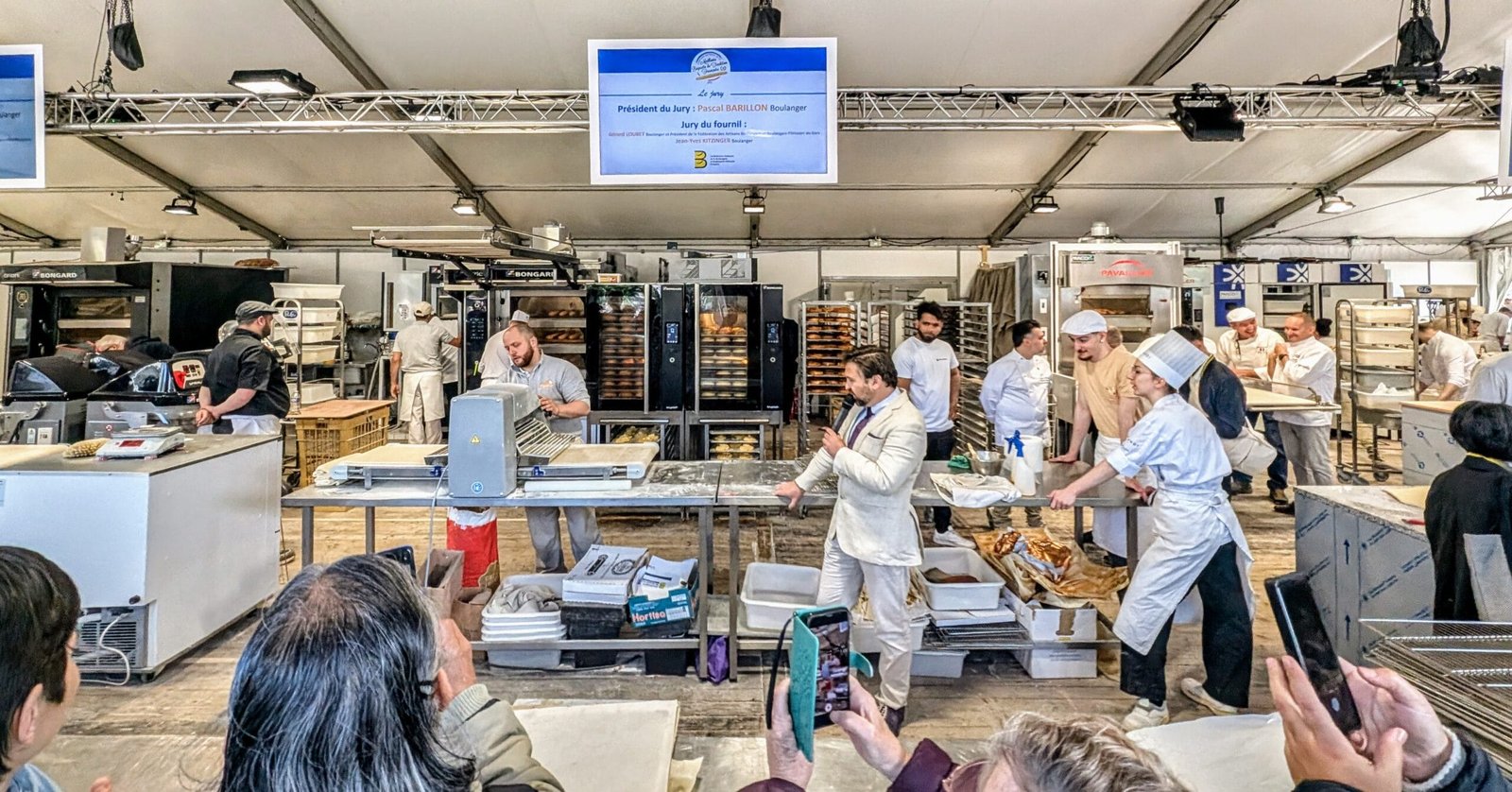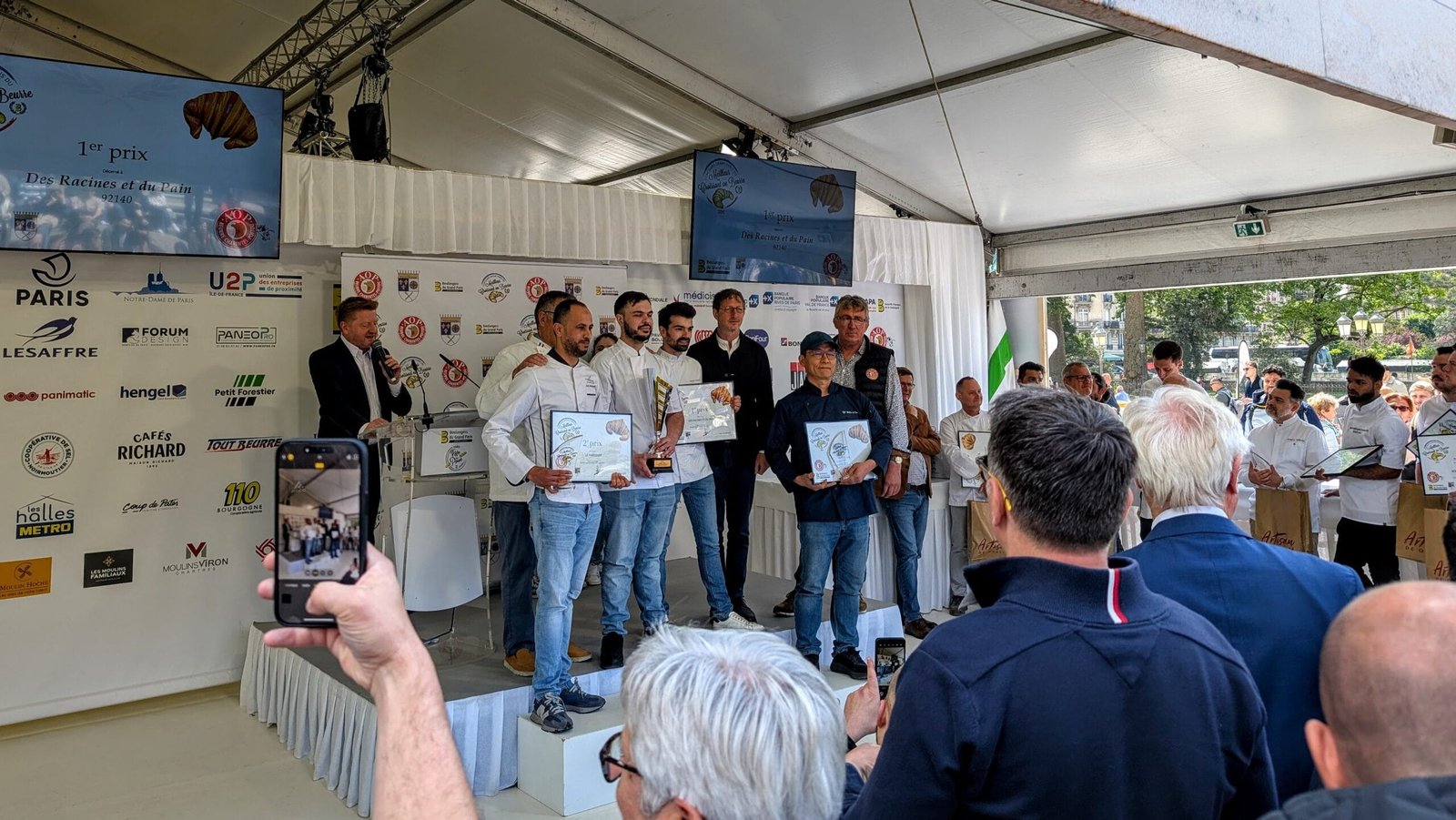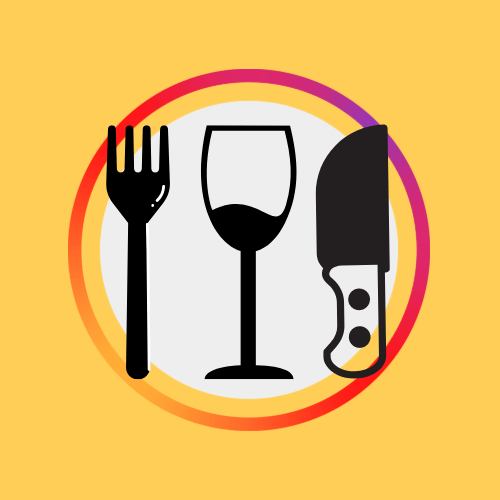Reverent
Île de la Cité
TL;DR: A sensory, carb-loaded love letter to French bread. Go early. Stay curious. Watch the best bakers in France in Action.
Who Should Go: Food lovers, families & tourists craving something real.
Why You Should Go: Because nowhere else in the world puts this much heart into flour and water
Written on 6 May 2025, after a morning immersed in flour, butter, and pure Parisian bread bliss.
It seems an improbable place to hold a food festival—the Parvis of Notre-Dame, surrounded by selfie sticks and blaring sirens, the endless churn of traffic and the thunder of bells rolling across the square. But maybe that’s the point. Bread doesn’t need quiet reverence; it belongs to the people. This is where it all comes together: tradition, tourism, and toasted crusts. I was back to see what was happening at this year’s Paris Bread Festival—and to point you to everything you actually need to know about it.
🥖 Visit our in Depth Guide if your Planning a trip to the Paris Bread Festival 2025
Want the fresh 2025 programme, dates, and prize winners?
Go to the 2025 Paris Bread Festival Guide
As I stepped under the tent at the Parvis de Notre-Dame, the elderly French woman next to me sniffed the air and sighed, her face lighting up like a boule just out of the oven—“Ça sent la France.”** And damn if she wasn’t right. It smelled like France—freshly baked baguettes, croissants still crackling from the oven, butter caramelising in the air. A holy perfume of tradition and pride.
I don’t think I’ve ever seen this many bakers working in public—aprons dusted in flour, hands deep in dough, beaming with pride. It’s rare to see these hardworking artisans on centre stage, usually tucked behind counters or ovens. But here they were, under the arches of Notre-Dame, being watched by tourists, schoolchildren, journalists, and the occasional pastry chef in training scribbling notes in awe.
I tucked myself into the corner and let the show unfold. A presenter in a pale suit narrated over the hum of ovens and chatter. He narrated as Ferrandi apprentices worked laminators under the watchful eyes of their mentors. the narrator walked the crowd through the baking process behind the competition baguettes, and unfortunately fumbled his way through a muddled patchwork of English commentary.
An older American couple beside me whispered, “He just spoke for ten minutes in French and only said 15 words in English—and half didn’t make sense.” I couldn’t help myself. The food tour guide in me took over. I introduced the premise and translated for the group of English-speakers forming around me.
Here’s the thing: if the majority of your crowd isn’t French, don’t leave the English commentary to a bored franglais speaker phoning it in. Hire someone bilingual and engaging—someone who can make bread sound sexy in two languages. This is your moment to make people fall in love with the boulangerie française.
But let’s not get too crusty. This year’s festival was miles better than last. QR codes everywhere linked to digital guides. Bilingual posters outlined everything from flour origins to fermentation. It felt more open, more fun. More for everyone.

I arrived around 10:30 on a Tuesday—quiet enough to chat with bakers without fighting a sea of elbows. “Are you enjoying yourself?” I asked one. He looked at me, a little guarded. “It has to be better than hiding in the back of the shop, no?” I pushed. He laughed. “Oui, c’est mieux.”
Not everything’s golden. The queue for baked goods snaked halfway across the parvis, and the prices—well, c’est trop cher, as one older French woman muttered. I smiled and reminded her that these weren’t your local loaves. “We’re at Notre-Dame,” I said. “This is a show.”
She gave me a look that could sour sourdough—one of those looks only a Parisian matriarch can deliver, carved from centuries of bread-based judgment and pride. “they are only here because of Saint Honoré and the Church’s blessing,” she said, walking off. Point taken, Madame.
Would I pay €3 for a croissant? Maybe not. But would I rather eat that than the sad sandwiches from tourist traps a few streets away? Any day.
This place—this festival—is a love letter to the bakers of France. Honest work. Honest food. Put on display in front of a cathedral. Sacred, in its own way.
The real reason I came this year? To witness the crowning of the best croissant in Paris. I’d just finished judging the competition a few weeks ago and wanted to see who took home the prize. The award ceremony—like any French event—was gloriously late, layered with the usual pomp, a touch of politics, and a butter manufacturer’s sales pitch.
But I wasn’t here for punctuality. I was here for the spectacle: apprentices wide-eyed beside their mentors, M.O.F. chefs in immaculate whites, journalists elbowing in for a quote. Real baking royalty gathering in one place.
And as I sat under the soft May sun, the newly restored façade of Notre-Dame glowing behind me, I felt incredibly lucky. Lucky to be part of this world, to understand what was happening on that stage, to care deeply about it. Behind me, a group of German school kids chatted loudly, oblivious. But I sat there—still, focused, in awe—because this moment mattered.
The French, for all their bureaucracy and bravado, fold an extraordinary amount of joy into food—like butter into dough, layer by layer, until it rises into something that feeds the soul. Into eating. Into croissants, even. It’s my first love, and I felt it all over again that day.
🥐 Curious what it’s like judging the best croissant in Paris? Read my full judging breakdown →
Would I come Back?
Absolutely. But not for the bread.
I’d come back to witness the craft. To see the bakers who are usually hidden behind kitchen doors step forward into the spotlight. To stand in a crowd full of kids, tourists, chefs, and grandmothers, all collectively holding their breath as a perfect baguette is pulled from the oven.
The Paris Bread Festival isn’t just about carbs—it’s about culture. About pride. About the ritual of baking and the community that forms around it.
It’s not a full-day event. You won’t spend hours there unless you’re competing, judging, or taking notes for a blog like me. But for 45–60 minutes, it’s a portal into the beating heart of French food tradition.
And honestly? That’s more than enough to bring me back.
🧭 Back to the full Paris Bread Festival 2025 guide →
Check out our interactive Google Map including Top Bakeries in Paris
Paris Bread Festival 2025
Address: Parvis Notre Dame – Place Jean-Paul II
Reservation Needed? No
Price Range: Free (but bread, sandwiches and treats are to be paid for)
Timing: A few weeks in May. Around 10am – 18pm
Love this? Get more real, unfiltered food stories straight to your inbox. No fluff, no spam—just damn good food writing and all for free!

From the bustling streets of Paris to the heat of a professional kitchen, my life has always revolved around food. A Brit who moved to France at 16, I trained as a chef in a Parisian palace kitchen at 18 and have spent decades cooking, eating, and living like the French.
By day, I run kitchens and events, but Eat Like The French is my side hustle—a way to share my passion for French food through writing and food tours. After a detour into tech recruitment, I returned to what I love most: cooking and storytelling—one dish, one tour, and one bite at a time.
🍽️ A Quick Note About Reviews at Eat Like The French
Every review on Eat Like The French is written from personal experience—no fluff, no freebies, no paid placements.
Chef Tris has been critiquing restaurants long before this site existed, with hundreds of Google Maps reviews and over 200 million views under his belt. These aren’t PR write-ups. They’re real moments, real meals, and real opinions from someone who’s spent years behind the pass and even more at the table.
We pay for almost everything we review—unless otherwise clearly stated—and we do it to stay honest. Our reviews reflect our own tastes, expectations, and experiences at a specific point in time. Food changes. Chefs move on. Service evolves. What we write is not gospel—it’s a snapshot. A love letter or a wake-up call, depending on the bite.
Think of these reviews as part culinary diary, part public service. We tell it like it is—not to tear anyone down, but to raise the standard of what food in France can be.
If you’re curious about how we review and why we don’t use stars, dive into our review philosophy. Want to read more critiques? Browse our full review archive, or check out Chef Tris’s author profile for the latest dispatches.
Tasted something different? Tell us in the comments. We welcome disagreement—it’s how better food gets made.


1 thought on “Paris Bread Festival 2025 — The Review”